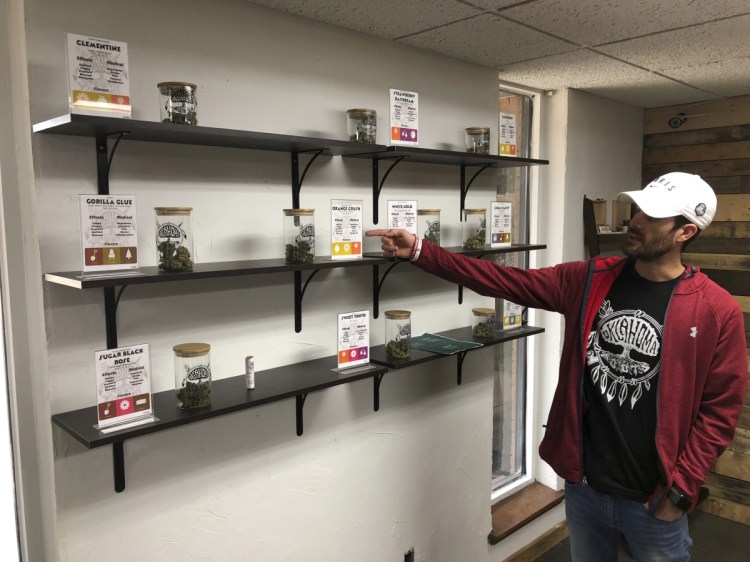OKLAHOMA CITY — The rollout of statewide medical and recreational marijuana programs typically is a grindingly slow process that can take years. Not so in Oklahoma, which moved with lightning speed once voters approved medical cannabis in June.
The ballot question received 57 percent support and established one of the nation’s most liberal medical pot laws in one of the most conservative states. Six months later, the cannabis industry is booming.
Farmers and entrepreneurs are racing to start commercial grow operations, and the state is issuing licenses to new patients, growers and dispensary operators at a frantic pace. Retail outlets opened just four months after legalization.
By contrast, voters in North Dakota, Ohio and neighboring Arkansas approved medical pot in 2016 but have yet to see sales begin amid legal wrangling and legislative meddling.
“I think we really are the wild, wild West in many respects,” said attorney Sarah Lee Gossett Parrish, whose firm in Norman represents several cannabis businesses. “Here in Oklahoma, we’re a pretty independent constituency. We are primarily a red state, but we don’t like a lot of government controls.”
Indeed, unlike virtually every other state, Oklahoma officials created no list of qualifying medical conditions for people to get medicinal marijuana. That has prompted a flood of applications for personal licenses to purchase pot.
Since August more than 22,000 have been approved and thousands more are in the pipeline. There are now 785 licensed dispensaries. Some small Oklahoma towns have as many as a half-dozen. Norman and Stillwater, the state’s two largest college towns, have 45 combined.
Sage Farms is among more than 1,200 licensed commercial growers. Owner Ben Neal said he has been offered $2,800 per pound for the entire crop, a total of $560,000.
“Nine months ago, I was saying that Oklahoma would be the last state that ever does it, and then all of a sudden this happened,” Neal said.
The primary driver behind Oklahoma’s quick rollout was a broadly written, citizen-led ballot question that included quick deadlines and required regulators to grant a license to every qualified applicant. But several political ingredients combined to push the effort along.
First, instead of the general election in November, Gov. Mary Fallin placed the question on the June primary ballot, where it passed overwhelmingly despite opposition from law enforcement, doctors and clergy. That allowed more time for the program to ramp up before the Legislature returns in February.
Then, when the Oklahoma State Board of Health tried to impose heavy-handed restrictions, such as banning smoke-able pot and requiring a pharmacist at every dispensary, the public was outraged. Every segment of the pro-marijuana movement mobilized and even the state’s Republican attorney general weighed in with a legal opinion that the board had gone too far.
Send questions/comments to the editors.



Success. Please wait for the page to reload. If the page does not reload within 5 seconds, please refresh the page.
Enter your email and password to access comments.
Hi, to comment on stories you must . This profile is in addition to your subscription and website login.
Already have a commenting profile? .
Invalid username/password.
Please check your email to confirm and complete your registration.
Only subscribers are eligible to post comments. Please subscribe or login first for digital access. Here’s why.
Use the form below to reset your password. When you've submitted your account email, we will send an email with a reset code.